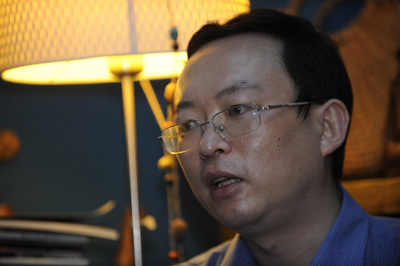New York, January 13, 2012–The decision of prominent Chinese writer Yu Jie to seek exile in the United States this week is an indication of the intensifying hardships that face dissidents who criticize Communist Party rule, the Committee to Protect Journalists said today.
Yu, 38, is an author and the founder of the Independent Chinese PEN Centre, which advocates for freedom of expression for journalists and writers. He has been a persistent critic of the Chinese leadership, and his commentaries are frequently published in U.S.-based Chinese-language news websites that are blocked in China. His 2010 book Wen Jiabao: China’s Greatest Actor, which was published in Hong Kong, portrayed China’s premier as a character trying to distract Chinese citizens from the harsh realities of Party rule, news reports said.
Yu, who visited the United States frequently in the past decade, always chose to return to China, the U.S.-based broadcaster Radio Free Asia reported. But the journalist decided to flee the country after a sustained period of extrajudicial house arrest and threats to his safety made his work impossible. “My circumstances dramatically worsened, and I experienced extremely cruel torture,” he told Reuters, adding that he spent much of 2011 confined to his home near Beijing.
Chinese officials refused Yu permission to leave China several times before finally agreeing on Monday to let him and his family board a flight from Beijing to Washington, The Wall Street Journal reported.
“Chinese authorities have never made life easy for writers and journalists who dare to criticize the national leadership,” said CPJ Asia program coordinator Bob Dietz. “But in the past few years, they’ve managed to make it unbearable. Yu Jie’s decision to seek exile is just another sign of the intensity of this crackdown.”
For almost a decade, Yu faced years of intermittent house arrest, harassment, the threat of jail, and violence at the hands of Chinese authorities. This pressure worsened in 2010. On December 9, 2010, the night before Yu’s friend and fellow dissident Liu Xiaobo was awarded the Nobel Peace Prize, police detained Yu and beat him unconscious, he told reporters.
“For a writer, being deprived of all freedom to communicate or express oneself is the worst thing that can happen, so I choose to live life in another way,” Yu told The Associated Press. “Hopefully, here [in the U.S.] I can have a normal life and at least finish my work.”
